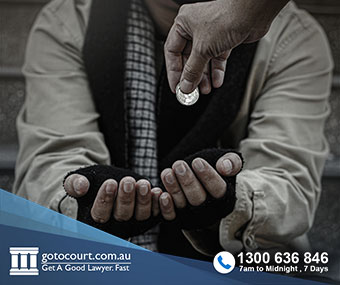Domestic Violence Orders in the Northern Territory
In the Northern Territory, Domestic Violence Orders (DVO) are made to protect a person, their property and their children from violence in a domestic relationship. DVOs are made under the Domestic and Family Violence Act 2007. This page deals with Domestic Violence Orders in the NT, the process for applying for an order and the consequences of breaching an order.
What is domestic violence?
Domestic violence may consist of stalking, intimidation, actual violence, damaging property, economic abuse, or attempts or threats to do any of the above. It occurs between people who are in a domestic relationship, including spouses, de facto partners, ex-partners, other relatives, persons who are dating or are engaged, people who live together, and people who are in a carer relationship.
Applying for a domestic violence order
If you are an adult who fears domestic violence and you do not need the order urgently, you can apply directly to the Local Court for a domestic violence order.
Alternatively, a police officer or an adult acting on your behalf can make the application. If you are between 15 and 18 years old, you can only apply for a domestic violence order with the leave of the court.
In certain circumstances, a police officer or child protection officer is required to apply to the court for a domestic violence order on behalf of a child. If you are the parent of a child who is the victim of domestic violence you can also apply for a domestic violence order on the child’s behalf.
How a DVO is made in the Northern Territory
Under section 18 of the Domestic and Family Violence Act 2007, a domestic violence order will only be made if there are reasonable grounds for the protected person to fear domestic violence from the defendant.
A DVO may be made with the defendant’s consent. When this occurs, the order will be made based on the material that has been filed by the applicant, without hearing any oral evidence.
If the defendant has been served with the DVO application but does not attend court, the court will generally make the order in their absence, provided the material that has been filed indicates that an order is needed.
If the defendant attends court and indicates that they want to oppose the order, the matter will be set down for a hearing. On that day, the court will hear evidence from both parties and decide whether to make the order.
Whilst a DVO application is being considered, an interim domestic violence order may be made to protect the victim until the courts makes a decision about the final order.
Urgent situations
A police officer may make a DVO if satisfied an order is urgently needed to ensure a person’s safety or because it is not practicable to seek a domestic violence order from the Local Court.
The police will only make a domestic violence order in a situation where one might reasonably have been made by the Local Court. As soon as possible after the police make an order, they must give copies to the parties and file the original with the court.
The copy given to the defendant acts as a summons to appear before the court, where the defendant may either consent to the order or show why the order should not be confirmed by the court. The court will then decide whether to confirm or revoke the order.
The effect of domestic violence orders
A domestic violence order sets out the rules that must be followed by the defendant. These rules impose restraints on the defendant, such as prohibiting them from contacting the protected person or from attending certain premises (e.g. a child’s school).
A DVO may also impose obligations on the defendant, such as requiring them to vacate their home or to attend a rehabilitation program.
The duration of a Domestic Violence order will be stated on the order.
Breaching a DVO is a criminal offence that may attract a term of imprisonment.
Breaches
Under section 120 of the Domestic and Family Violence Act 2007, it is a criminal offence to breach a DVO. The maximum penalty that applies for breaching a DVO is a fine of 400 penalty units or imprisonment for two years.
If a person is found guilty of breaching a DVO and has previously been found guilty of breaching a DVO, the court must record a conviction and sentence them to at least seven days imprisonment unless satisfied that it is not appropriate to do so.
A person who is charged with breaching a DVO has a defence if they were not in court when the order was made and had not been served with a copy of the order.
If you require legal advice or representation in any legal matter, please contact Go To Court Lawyers.








